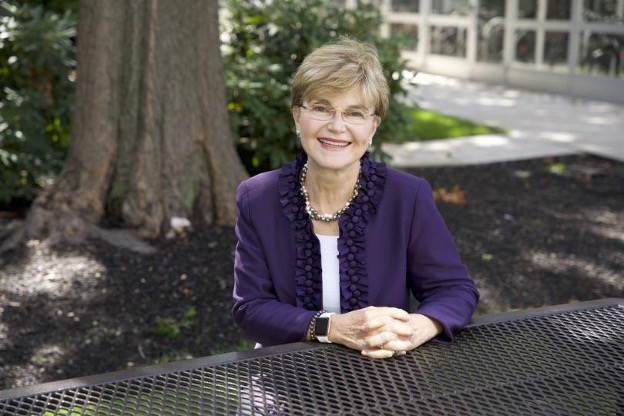Sophia Maggelakis, Ph.D.Wentworth Institute of Technology
As Provost and Senior Vice President for Academic Affairs, Dr. Maggelakis is the chief academic officer of Wentworth Institute of Technology. Reporting to the President, the Provost oversees all academic programs at the undergraduate and graduate level, all research programs, as well as military services, institutional effectiveness and planning, co-op and career services, workforce development, professional education, university library, and the registrar’s office. Sophia Maggelakis joined Wentworth from Rochester Institute of Technology (RIT), where she was the Dean of the College of Science for thirteen years. Prior to serving as dean, she served as the Head of the School of Mathematical Sciences for nine years. She was honored for her accomplishments as a leader and faculty member with the status of Dean Emerita of the College of Science and Professor Emerita of Mathematics. As a leader, Maggelakis has a track record of spearheading several initiatives in the College of Science and supporting and working collaboratively with faculty and staff. She founded the School of Mathematical Sciences, the Summer Mathematics Institute, the Women in Science (WISe), the Center for Advancing STEM Teaching, Learning, and Evaluation (CASTLE), and the Integrated Sciences Academy. Maggelakis is an advocate for diversity and received the 2016 Edwina Award from Rochester Institute of Technology for Excellent Work in Enhancing Gender Inclusiveness and Diversity. In addition to her administrative and leadership experience, Maggelakis rose through the faculty ranks at RIT as an educator who focused on student success and scholarship. She is a recipient of several awards, including the Eisenhart Award for Outstanding Teaching and a member of the Faculty for the 21st Century for the Project Kaleidoscope (PKAL), one of the leading organizations in the United States for building and sustaining strong programs in the STEM disciplines. Maggelakis’ research area is mathematical biology, where she has published book chapters, refereed journal articles, and presented numerous papers at national and international conferences. During her tenure, the College of Science achieved several milestones, including:
At Wentworth, Maggelakis is committed to academic excellence, student, faculty and staff success, and promoting, supporting, and enhance a vigorous, diverse, inclusive, and rewarding academic environment that fosters faculty and staff professional growth, job satisfaction, impartiality, social justice, equality and equity for all. Key initiatives under Dr. Maggelakis’ leadership include: fostering the value of a well-rounded education that includes the sciences, arts and humanities; building strong student and faculty bonds; expanding experiential learning and undergraduate research; building undergraduate and graduate programs in strategic areas; establishing research and scholarship in core areas and across a variety of application domains, and forming strategic partnerships with industry leaders and nonprofits. |

 Sophia Maggelakis, Ph.D., became the first woman to serve as provost and senior vice president for Academic Affairs at Wentworth Institute of Technology in August 2022.
Sophia Maggelakis, Ph.D., became the first woman to serve as provost and senior vice president for Academic Affairs at Wentworth Institute of Technology in August 2022.